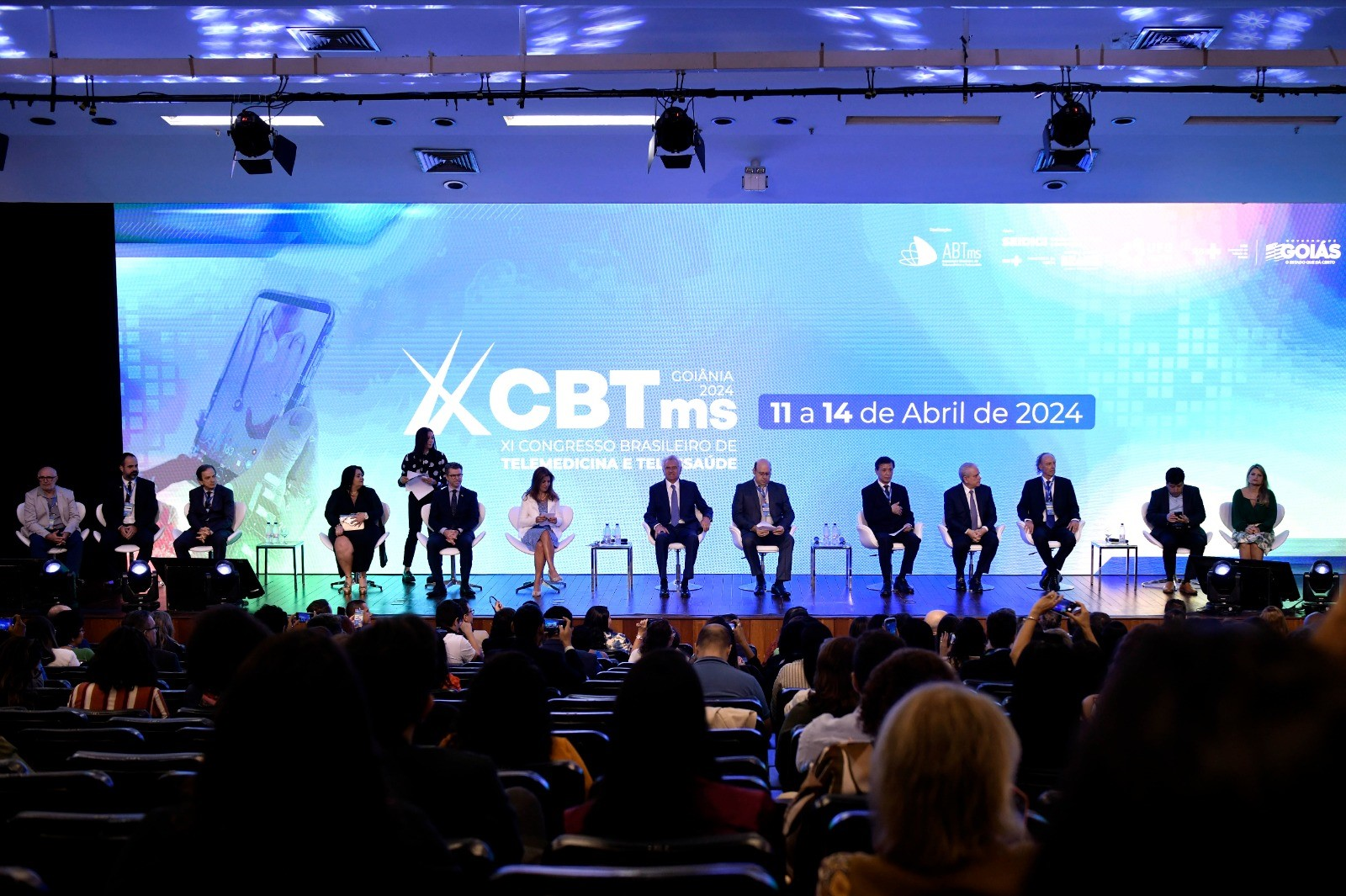RNP participates in the XI Brazilian Congress of Telemedicine and Telehealth (CBTMS)
During the week of April 11-14, the Goiânia Convention Center hosted the 11th Brazilian Congress of Telemedicine and Telehealth (CBTMS), an event that represents advancement and innovation in Brazilian digital health. Organized by the Brazilian Association of Telemedicine and Telehealth (ABTMS), the event highlighted progress in the field of digital health.
Representing the Ministry of Health, the Secretary of Information and Digital Health of the Ministry of Health, Ana Estela Haddad, reinforced the goals of the recently launched SUS Digital program, detailing the progress achieved: 99.9% of municipalities have joined SUS Digital. “The telehealth strategy is not only extremely effective and capable of improving quality, it is widespread throughout the country", she highlighted.
She also stated that Brazil has many experiences that demonstrate that, today, telehealth is being understood within a broader scope of digital health. The Ministry of Health is a partner of the Congress, held in partnership with the Brazilian Association of Telemedicine and Telehealth (ABTms).
Digital Health had a special highlight on the national and international scene this week, when the G20 health working group met, chaired by Brazil, with a delegation from 20 countries and several international organizations.
Digital health was chosen as one of the four priority themes of the G20 Health Working Group. At the same time, Minister Nísia Trindade, together with President Lula, launched the SUS Digital program on Monday, April 8.
Luiz Ary Messina gave a presentation on “RNP’s Contribution to the Digital Transformation of the SUS”, highlighting ongoing actions and projects. The event also featured the participation of the Director of the Department of Digital Health and Innovation, Professor Cleinaldo de Almeida Costa, and the Coordinator of Innovation in Digital Health, Professor Davi Xavier da Silva, who presented INOVA SUS Digital and its areas of activity.

Alexandre Taleb, president of the Brazilian Congress of Telemedicine and Telehealth, stated, during the opening table of the Congress, that “in a country like Brazil, with so much inequality, it is inconceivable not to invest in technologies applied to health.”
The governor of the state of Goiás, Ronaldo Caiado, explained the importance of all municipalities in Goiás having joined the SUS Digital program. "Many people are not familiar with the reality of the northeast of Goiás. Often, a person has to travel from Divinópolis (GO) to Palmas (TO) or from São Domingo (GO) to Barreiras (BA), traveling around 600 or 800 km to receive more specialized care. These are realities that we have and we know that health cannot be built without a link with the Ministry of Health, so that we can advance programs and provide quality care to society”, reinforced Governor Caiado.
Expansion
At the beginning of the current administration, the Ministry of Health had partnerships with 10 Telehealth Centers. This number has grown to 24. The expectation is to reach 35 by the end of 2025. In addition to the 14 new centers, the older ones are also expanding their services. During the Congress, the Center linked to the Federal University of Roraima (UFRR) commented on the strategy to serve the indigenous population.
Telehealth is one of the priority tools of the SUS Digital program, from the Ministry of Health, to expand access to quality healthcare. Strengthened during the COVID-19 pandemic, telehealth and telemedicine are fundamental for the digital transformation of Brazilian states and municipalities, with emphasis on regions that are geographically difficult to access. In partnership with the centers, the Ministry of Health, through Seidigi, carried out 1.5 million telediagnoses and more than 92 thousand consultations in 2023.
Three of the 24 centers offer national services: the Center of the Federal University of Minas Gerais (UFMG) offers telecardiograms to 12 states in the country; the Center of the Federal University of Santa Catarina (UFSC) promotes teledermatology to 14 states and the Center of the Federal University of Goiás (UFG) serves eight states with teleophthalmology.
